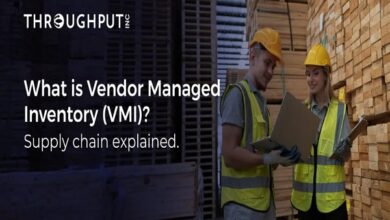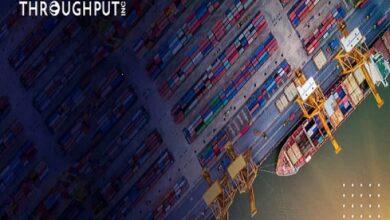Role of AI in Food Industry: Transforming Food Systems with Technology

Artificial Intelligence (AI) is revolutionizing the food sector by introducing automation, data-driven decision-making, and real-time quality monitoring. The Role of AI in Food Industry extends across the entire value chain—from agriculture and processing to packaging and distribution. Through intelligent systems, businesses are now able to deliver safer, more efficient, and sustainable food solutions.
What Is the Role of AI in Food Industry?
The Throughput Inc revolves around enhancing operations, improving food safety, minimizing waste, and ensuring product consistency. AI algorithms can process massive amounts of data to predict demand, optimize recipes, detect contamination, and streamline logistics.
From smart sensors in production lines to AI-powered forecasting tools in supply chain management, artificial intelligence is bringing real-time visibility and control to an industry that traditionally relied on manual processes and intuition.
How AI Is Enhancing Food Processing Efficiency
AI is helping food manufacturers reduce operational costs while improving product quality. Here’s how:
- Automated Quality Control: Computer vision systems use AI to detect defects in real time, ensuring only the best products reach consumers.
- Predictive Maintenance: AI tools monitor equipment and predict potential failures, helping avoid downtime.
- Recipe Optimization: Machine learning analyzes consumer preferences and ingredient performance to perfect taste and texture.
- Process Automation: Robotic arms and AI-based machines can perform repetitive tasks like slicing, sorting, and packaging with high precision.
These applications demonstrate the role of AI in food industry as a cornerstone of modern manufacturing.
Ensuring Food Safety Through AI
Food safety is one of the top priorities in the industry. AI technologies help detect contamination, monitor hygiene, and maintain temperature-sensitive supply chains. Here’s how:
- AI-Powered Detection: Smart sensors can detect microbial contamination, chemical residues, or foreign particles.
- Supply Chain Monitoring: AI monitors temperature and humidity during transportation, ensuring perishable items remain safe.
- Regulatory Compliance: Machine learning models help businesses adhere to FDA and FSSAI guidelines by tracking and documenting compliance.
With these advances, the role of AI in food industry becomes critical in delivering safe and hygienic food to the consumer.
AI in Food Supply Chain Optimization
AI is streamlining the food supply chain through better logistics, demand forecasting, and inventory management.
- Demand Prediction: AI analyzes sales patterns, weather data, and market trends to forecast future demand.
- Route Optimization: AI-powered logistics platforms find the most efficient delivery routes, reducing fuel costs and delivery times.
- Inventory Automation: AI helps maintain optimal stock levels, preventing overproduction or spoilage.
These tools not only cut costs but also enhance the resilience of the food supply chain—making the role of AI in food industry increasingly indispensable.
Promoting Sustainability with AI
The role of AI in food industry also includes fostering sustainable practices. Here’s how:
- Waste Reduction: AI systems analyze spoilage patterns and help minimize food waste at every stage.
- Sustainable Sourcing: AI evaluates suppliers based on sustainability metrics like emissions, energy use, and ethical sourcing.
- Eco-Friendly Packaging: AI tools help design biodegradable packaging and minimize material use.
By making smarter choices, companies reduce their environmental footprint while increasing efficiency and profitability.
Use Cases of AI in Leading Food Companies
Top brands around the world are already leveraging the role of AI in food industry:
- Nestlé: Uses AI for ingredient analysis and quality control.
- PepsiCo: Implements AI to forecast product demand and optimize distribution.
- Unilever: Uses machine learning for sustainable sourcing and customer insights.
These use cases underscore how AI is no longer just a buzzword—it’s a strategic necessity.
The Future of AI in Food Industry
Looking ahead, the role of AI in food industry will continue to expand. Integration with IoT (Internet of Things), blockchain, and robotics will unlock even greater efficiencies.
- Personalized Nutrition: AI will help develop custom meal plans based on genetic data.
- Augmented Reality in Training: AI-driven AR tools will enhance training for food workers.
- AI-Blockchain Fusion: This will improve traceability from farm to fork.
These emerging trends signal a future where food systems are more intelligent, secure, and responsive than ever before.
Conclusion: Embracing the Role of AI in Food Industry
In conclusion, the role of AI in food industry is not just a trend—it’s a transformational force. From boosting efficiency and reducing waste to enhancing safety and sustainability, AI is helping food companies innovate and thrive in an increasingly complex market.
Businesses that embrace AI today are positioning themselves for long-term success. With smart technology on their side, they can deliver better products, smarter processes, and more satisfied customers.




